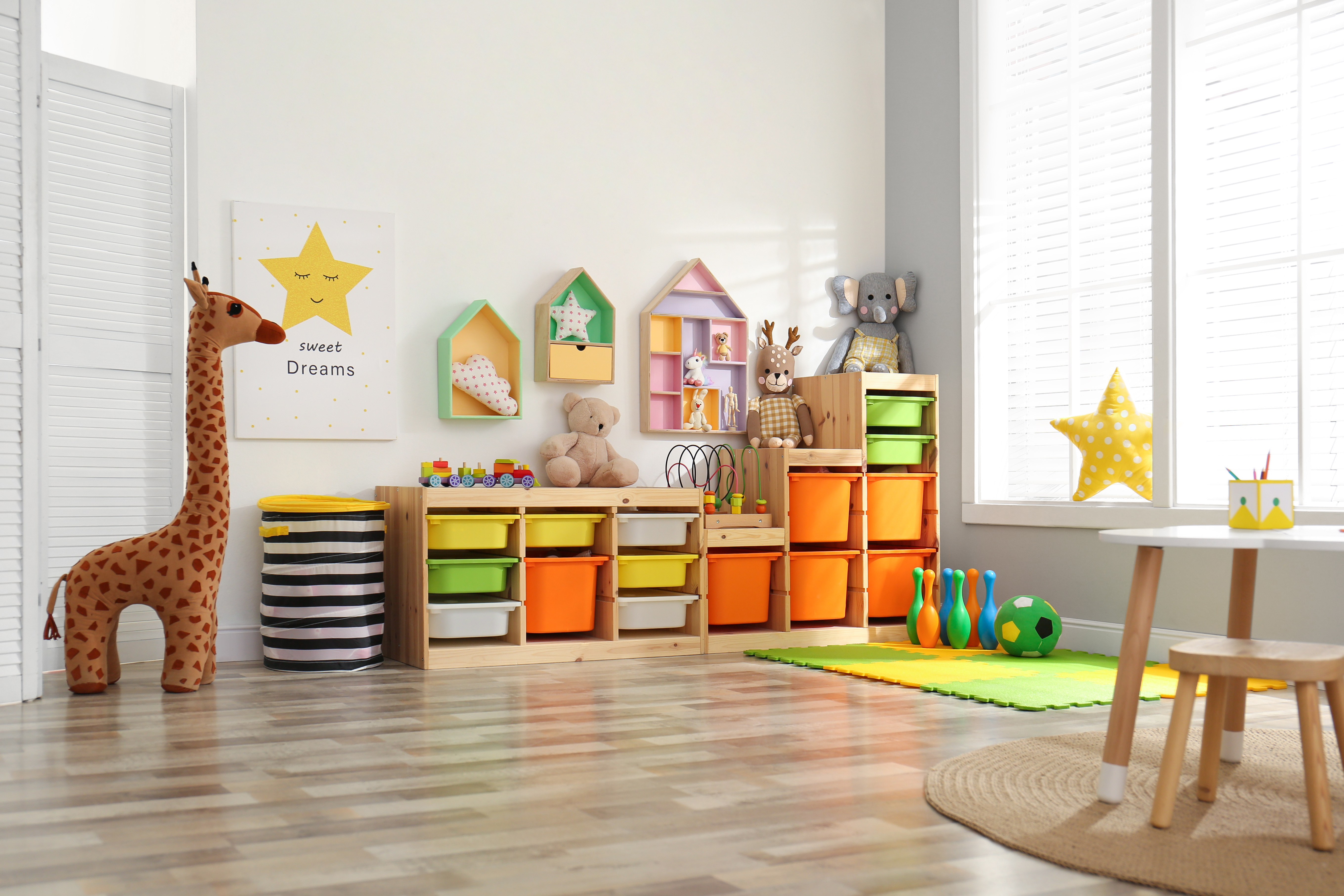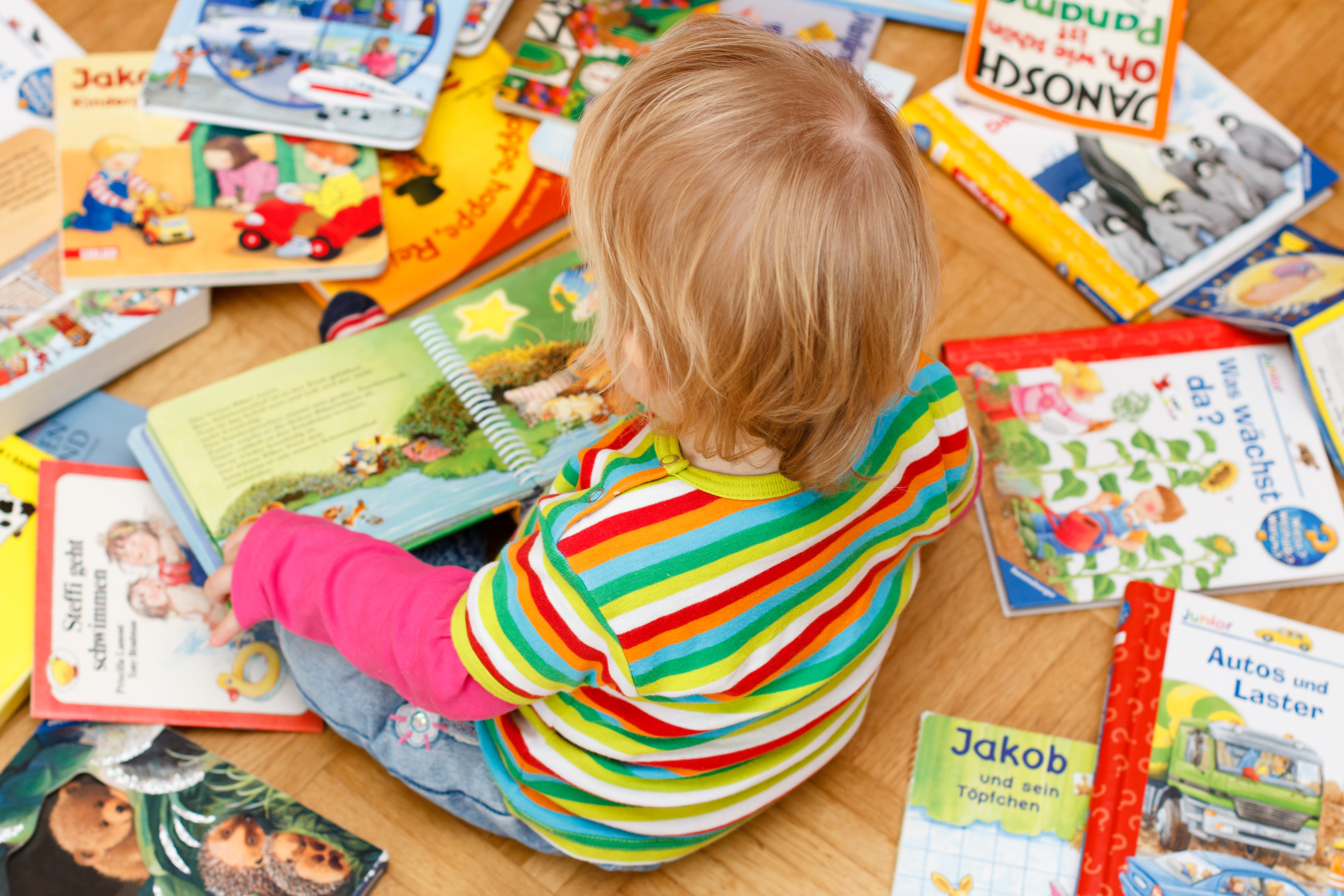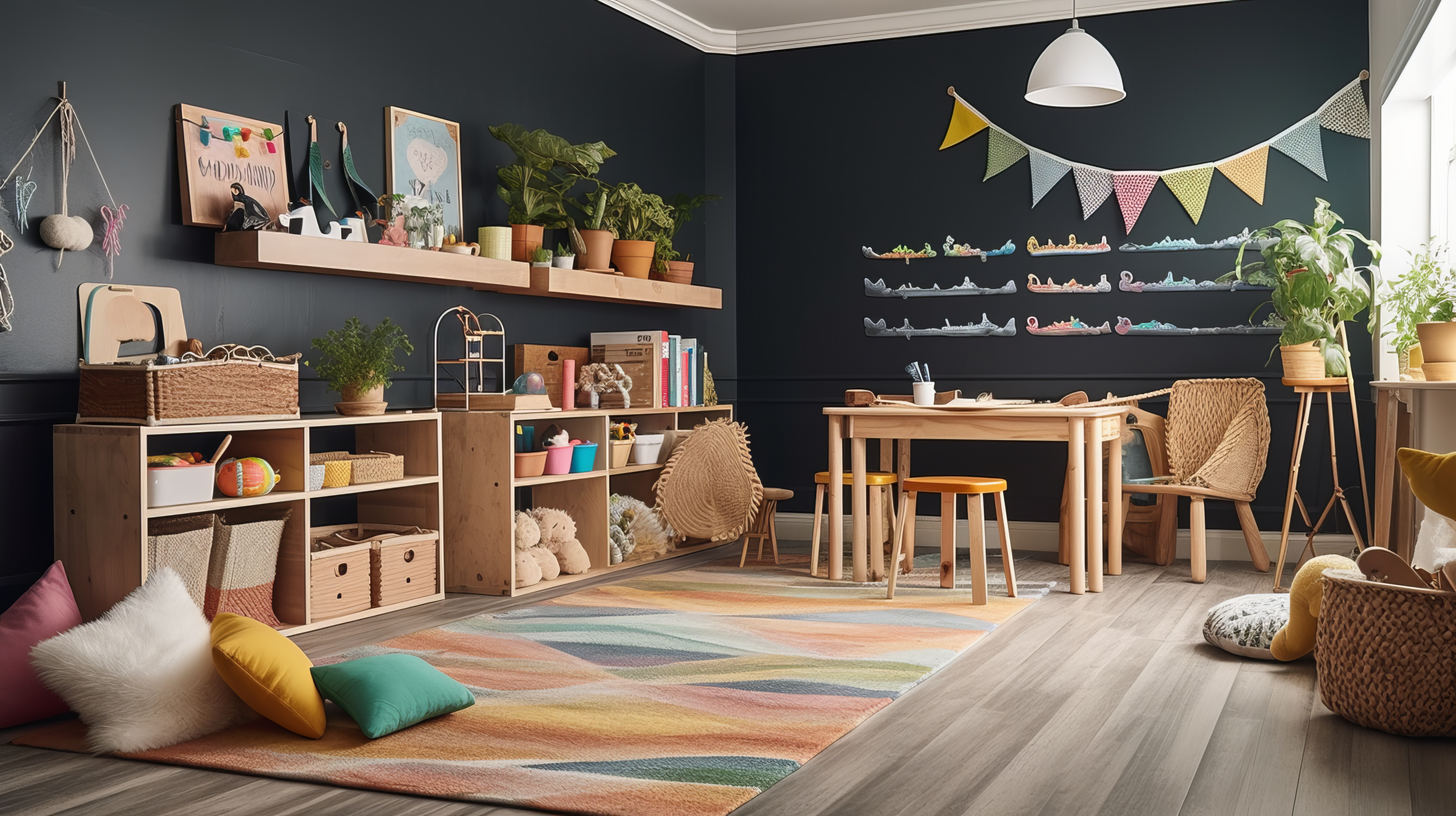Creating a nurturing and stimulating environment for your child is essential for their growth and development. Whether you’re setting up a nursery for a newborn or revamping a playroom for your growing child, here are some creative and practical ideas to help you make the most out of a nursery or playroom.
Choose a theme
Selecting a theme for your child’s room can add excitement and cohesiveness to the overall design, which will help you avoid clutter and chaos. Whether it’s a favourite animal, a fairytale world, or beloved cartoon characters, incorporating a theme through colour schemes, wall decals, bedding, and accessories can instantly transform the space.
Optimise storage

Organisation is one of the biggest challenges in any child’s room. Invest in smart storage solutions such as labelled boxes, open shelves, and multi-functional furniture to help keep toys, books, and clothes in order. Incorporating low-height storage units will allow your child to access their belongings easily, encouraging independence and tidiness.
Think safety first
When designing a nursery or playroom, it can be easy to let your imagination run wild, but safety should always be a top priority. Secure heavy furniture pieces to the wall or floor to prevent tipping, cover electrical outlets, and use cordless blinds or install safety devices to keep cords out of reach.
Create a space for reading

Instilling a love for reading early on is important for your child’s cognitive development. Set up a cosy reading nook with a comfortable chair or beanbag, a colourful bookshelf, and soft lighting. This is a great way to introduce independent reading.
Make things comfy and cosy
Make your child’s room a comforting retreat by incorporating soft textures and cosy seating. Use soft rugs, cushions, and curtains to create a warm and inviting atmosphere. Consider installing blackout blinds or curtains to help regulate light and temperature and encourage better sleep patterns.
Incorporate learning

A children’s room should be a space for learning and imaginative play. Include educational posters, alphabet or number wall decals, and interactive toys that promote learning and problem-solving skills. A chalkboard or whiteboard on one wall can serve as a canvas for your child’s creativity, allowing them to draw, practice writing, and express themselves freely.
Prepare to be flexible
Children’s preferences and needs change as they grow, so it’s best to design a room that can adapt over time. Choose furniture and décor that can easily transition from a nursery to a playroom or a toddler’s room to a pre-teen’s space. Opt for modular furniture, adjustable shelving units, and versatile storage solutions that can be rearranged and repurposed as your child’s needs evolve.
